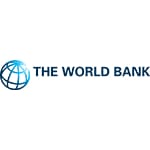Increasing Resilience through Cash Transfers in Kinshasa
HIGHLIGHTS
- Behaviorally informed SMS text messages helped cash transfer recipients spend in line with their priorities to build economic resilience.
- SMS text messages are an effective channel to deliver impact digitally at low cost by reducing need for in-person interactions.
The Challenge
In the Democratic Republic of Congo (DRC), people experiencing poverty in urban areas largely include those who have been excluded from traditional social protection systems, who were also most affected by the economic consequences of the COVID-19 pandemic. To support these people, the World Bank and FSRDC developed and implemented a digital cash transfer program to support them in meeting their needs and building resilience. For program participants, an influx of cash can help them support their families, but using it optimally and in ways that build resilience and improve future prospects can be difficult without support or scaffolding, particularly for those experiencing poverty during a global pandemic.
Our Approach
We reviewed data and spoke to stakeholders to identify challenges cash transfer recipients faced in using their cash to support their immediate needs and build resilience. We identified that many of the barriers recipients faced were similar to those we tackled in other cash transfer programs, including identifying financial goals and creating plans to reach them. Because the program delivered cash digitally, we adapted goal-setting and plan-making designs from our previous work to be sent via SMS text message. These messages were timed to be sent to recipients received just before and just after they received their digital cash.
Results
In 2021, we ran a randomized controlled trial where we data from 5000 cash transfer recipients through an interactive voice response phone survey. Participants who received the behavioral SMS text messages were 3% more likely to articulate a spending priority, 6% more likely to have a future-oriented priority (such as spending on education or investment in a business), and 4% more likely to report that they spent in line with their priority. The intervention was also extremely cost-effective at $0.22 per person.
Takeaway
With the expansion of cash transfer programs around the world in response to COVID-19, and the shift to digital cash transfers that were already in progress but expedited due to the pandemic, it is crucial that programs help recipients make the most of the cash they receive. This work provides evidence that digital interventions are an effective, and cost-effective, way to provide the scaffolding recipients need to spend their cash more intentionally and in ways that align with their own goals for strengthening their financial resilience.
Interested in our work applying behavioral science to global development? Email info@ideas42.org, follow us on LinkedIn, or tweet at @ideas42 to join the conversation.
Partners










